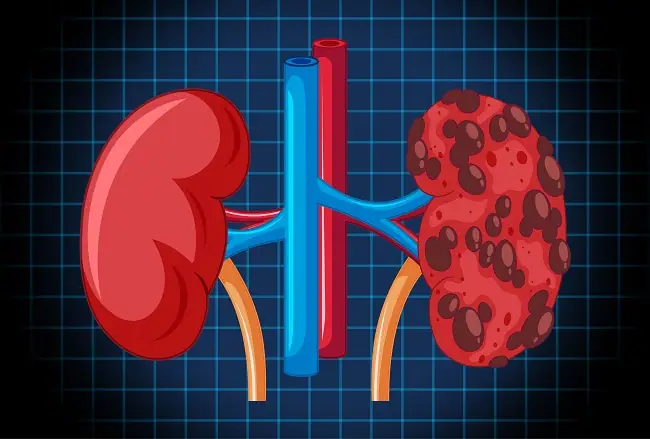End-stage renal disease (ESRD) is a serious medical condition that requires ongoing treatment and management. It occurs when the kidneys are no longer able to function properly, leading to a buildup of waste products and excess fluid in the body. This can cause various health problems, including anemia, bone disease, nerve damage, and cardiovascular issues.

Managing ESRD can be challenging both physically and emotionally. However, with the right lifestyle changes and support systems in place, it is possible to live well with this condition. In this blog post, we will discuss some valuable tips for living well with end-stage renal disease.
Maintain a Healthy Diet
One of the most important aspects of managing ESRD is maintaining a healthy diet. Your doctor or dietician will likely recommend a specific meal plan that limits your intake of certain nutrients and includes foods that are beneficial for kidney health. Common dietary restrictions include reducing sodium, potassium, and phosphorus intake.
In addition to following a recommended meal plan, it is essential to stay hydrated by drinking enough water throughout the day. This can help flush out excess toxins from the body and prevent dehydration, which can worsen symptoms of ESRD.
Stay Active
Physical activity may not be easy when living with end-stage renal disease, but it is still crucial for maintaining overall health and well-being. Regular exercise can help improve blood flow and keep muscles strong, which can aid in managing symptoms such as fatigue and weakness.
It is essential to consult with your doctor before starting any exercise routine. They can advise on the types of activities that are safe for you and recommend modifications if needed. Some exercises that may be suitable for individuals with ESRD include walking, yoga, and strength training.
Manage Stress
Living with ESRD can be mentally and emotionally taxing. It is common for individuals to experience feelings of anxiety, depression, or stress. These emotions can have a significant impact on physical health and overall quality of life.
That’s why it’s crucial to find healthy ways to manage stress. This could include practicing relaxation techniques such as deep breathing or meditation, engaging in hobbies or activities that bring joy, seeking support from friends and family, or talking to a therapist.
Seek Support
Having a support system is crucial when living with end-stage renal disease. This support can come from family, friends, healthcare providers, support groups for individuals with ESRD, and even hospice care in Chicago. Connecting with others who understand your experience can greatly assist in managing the physical and emotional challenges of this condition.
Additionally, your healthcare team, including those providing hospice care in Chicago, can offer essential guidance and support as you navigate life with ESRD. They are available to answer questions, address concerns, and provide resources to help you manage symptoms and enhance your quality of life.
Follow Medication Regimens
Managing ESRD often involves taking multiple medications to control symptoms and prevent complications. It is crucial to follow your prescribed medication regimen as instructed by your doctor. This includes taking medications at the right times and in the correct dosages.
It may be helpful to use pill organizers or set reminders to ensure you don’t miss any doses. If you experience any side effects or have trouble affording your medication, it is important to discuss this with your healthcare team. They may be able to provide alternative options or resources for assistance.
Stay Informed
Staying informed about your condition is an essential aspect of managing ESRD. It can help you understand what is happening in your body, make informed decisions about treatment options, and advocate for yourself with healthcare providers.
Your doctor should provide you with information about ESRD and its management, but it’s always a good idea to do additional research and ask questions. Joining online communities or attending support groups can also be a great way to stay informed and learn from the experiences of others living with ESRD.
Consider Kidney Transplant
For some individuals with end-stage renal disease, a kidney transplant may be an option. This involves receiving a healthy kidney from a donor to replace your damaged kidneys. A successful transplant can greatly improve the quality of life and decrease the need for ongoing dialysis treatments.
If you are considering a kidney transplant, it is important to discuss this with your healthcare team and explore all options thoroughly. They can help determine if you are eligible for transplantation and provide guidance throughout the process.
Maintain Regular Doctor Visits
Regular check-ups with your doctor are critical when living with end-stage renal disease. These visits can help monitor your condition, track any changes, and adjust treatment plans as needed.
It is essential to keep all scheduled appointments and communicate openly with your healthcare team about any symptoms or concerns you may have. This can help prevent complications and ensure that you are receiving the best care possible.
In Conclusion
Living well with end-stage renal disease may present challenges, but it is possible with the right approach. By maintaining a healthy diet, staying active, managing stress, seeking support, following medication regimens, staying informed, considering transplant options if applicable, and maintaining regular doctor visits, individuals with ESRD can improve their quality of life and manage their condition effectively. Remember to always discuss any lifestyle changes or concerns with your healthcare team to ensure the best possible outcomes.







